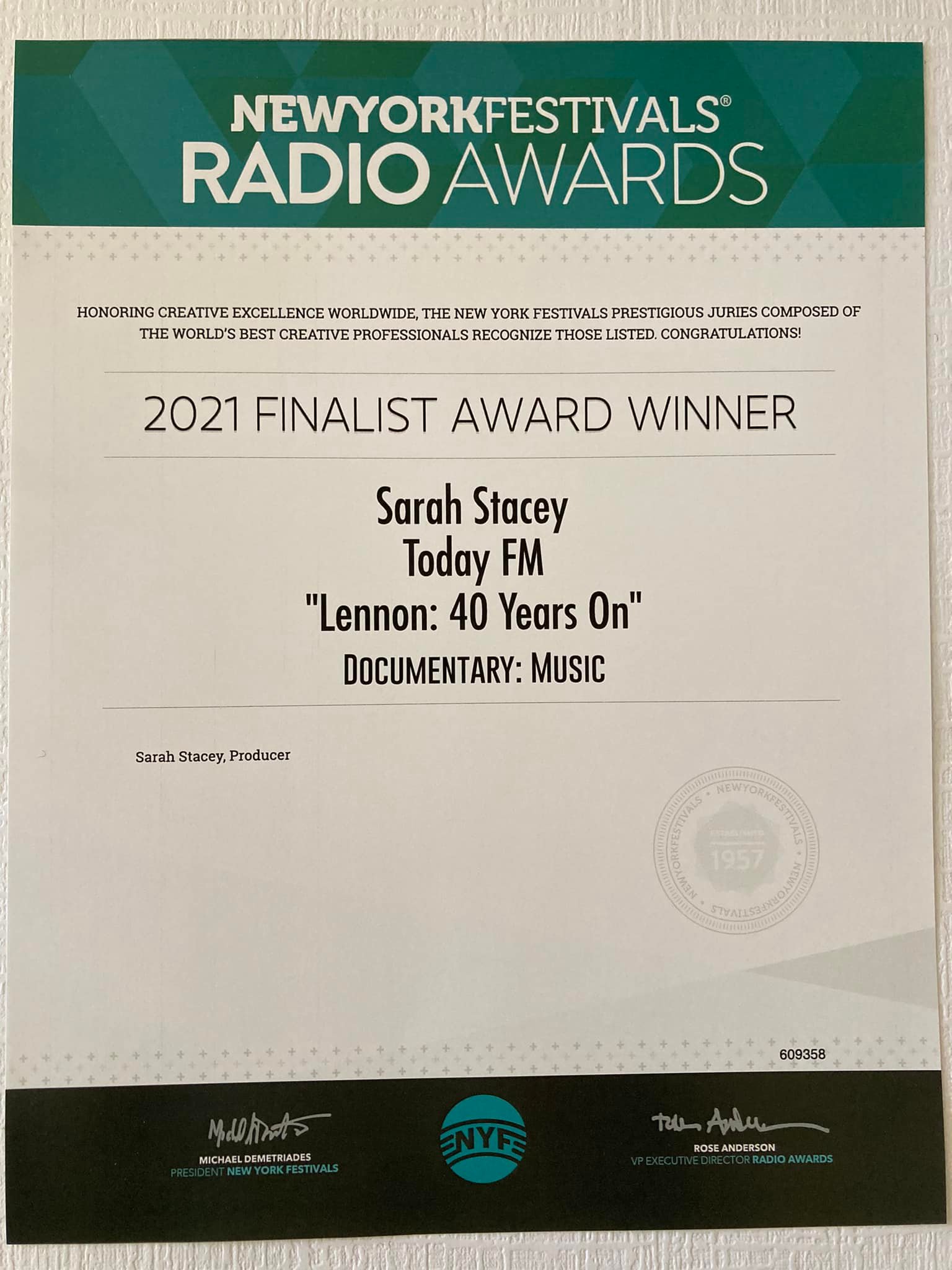A few weeks ago I got a nice surprise in the post: my finalist certificate from the New York Festivals Radio Awards for a documentary I made called Lennon: 40 Years On
The documentary was broadcast in December 2020 to mark the 40th anniversary of John Lennon’s senseless murder in New York. It was, therefore, eligible for entry in the 2021 awards and ended up placing as a finalist in the Music Documentary category. I was absolutely thrilled. For radio makers, it doesn’t get much better than having your work recognised by some of the world’s most respected industry professionals. For me personally, it was also an incredible honour to be considered alongside some major broadcasters — especially for a programme that was made entirely remotely, by myself, during lockdown.
It wasn’t supposed to be that way. As a huge Beatles fan, I first came up with the idea for the documentary one day in 2019, while musing that next year would be John Lennon’s 40th anniversary. I already knew at that stage what I didn’t want to make: a profile of Lennon’s life and career (there are plenty of those already), or an in-depth account of the murder itself. Instead, I wanted to find a way to reflect on how that tragic event had influenced his legacy, and how fans understand him today. I decided to look particularly at how he has been remembered in his birthplace of Liverpool and his adopted city of New York. The plan was to visit both cities to record interviews on location.
But then COVID happened.
When working from home became a requirement, I had to decide whether or not to carry on with the idea. I’d done so much research that it seemed crazy to give up. I spent the next few months contacting contributors and arranging interviews, then recorded all of them remotely. Zencastr was my lifesaver. I was able to set up a free account with eight hours of recording time per month, safe in the knowledge that each audio file was being recorded locally without the pain of internet connection dropouts and poor quality. Sure, you still have to hope your guest will have a decent microphone, but this is all stuff you can talk through with them beforehand.
Then came the process of listening through to hours’ worth of audio and highlighting the parts of each interview I would potentially use. Once that was done, I scripted and recorded my narration and began editing everything together. There was quite a bit of archive audio to work with, as well as music. Mixing took several weeks. As everything had been done remotely, with no access to studios or different locations, I wanted to devote plenty of time to getting it right and making sure it was as close to broadcast standard as possible. There were times during that six-month period when I didn’t think it would all come together. But it did, and by the time the 40th anniversary arrived, it was ready to air.
Fast forward 15 months and people I don’t know are still contacting me to tell me they’ve listened and enjoyed it. I’m not normally one to pat myself on the back for a job well done (though I’m trying to get out of the habit of being too hard on myself), but in this case, I don’t mind saying I’m incredibly proud of what I achieved with this documentary in spite of the challenges. I’m also beyond grateful to everyone who contributed, or who simply offered words of encouragement along the way. In retrospect, the pandemic probably forced me to be twice as productive. Being at home all day long instead of commuting to and from work meant I had more time to focus and get things done.
It was a massive undertaking, but I’m so glad I did it.
Link to the documentary: https://www.todayfm.com/podcasts/the-paul-mcloone-show/lennon-40-years-on
